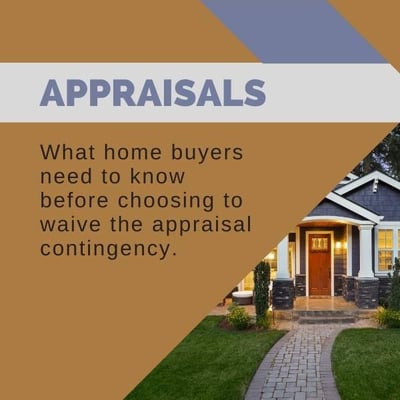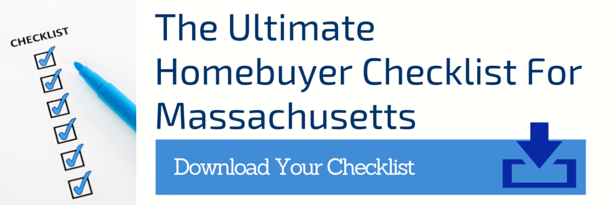In highly competitive real estate markets, home buyers often contemplate waiving essential contingencies to make their offers more attractive to sellers.
 Home buyers may choose to waive the appraisal contingency, but it is a risk that should be carefully considered.
Home buyers may choose to waive the appraisal contingency, but it is a risk that should be carefully considered.
Massachusetts real estate agents typically use one of two primary contracts to make an offer to purchase residential real estate: (1) The Massachusetts Association of Realtors Contract to Purchase Real Estate; and (2) The Greater Boston Real Estate Board Offer to Purchase Real Estate.
Neither contract has an appraisal contingency. A home buyer's real estate agent should add the appraisal contingency if one is desired. Likewise, a home buyer might proactively waive the appraisal in the contract to purchase real estate.
An appraisal contingency waiver does not mean a home buyer waives the home appraisal. It means the home buyer is willing to cover any difference between the agreed-upon price and a low appraisal value with cash at closing. It assures the seller that the buyer will not use a low appraisal to terminate the agreement to purchase the home.
What is an Appraisal Gap?
An appraisal gap is the disparity between a home's appraised value and the buyer's purchase price. For example, if a home buyer makes an offer of $500,000 on a home, but the appraiser determines its value to be $470,000, a home buyer faces an appraisal gap of $30,000.
For example, a seller might list a house for $575,000, and a homebuyer may offer $615,000, or $40,000 more than the listing price. While a seller certainly will like the offer, if the appraisal comes in less than $615,000, the home buyer could terminate the agreement and walk away. A home buyer might include an appraisal contingency clause in a seller's market, essentially waiving the appraisal contingency.
An appraisal gap clause is when a home buyer commits to paying more than a property's appraised value if the appraised value is lower than the offer or agreed-on price of the home. Essentially, a homebuyer agrees to cover the difference in additional down payment between what they were willing to pay for the house and the amount an appraiser sets the home's appraised value.
In most cases, an appraisal gap clause assures the seller that a home buyer will proceed with the transaction if the appraisal is lower than the agreed-upon sales price.
An alternative to an outright waiver of the appraisal contingency is adding an appraisal gap clause to the contract that limits the amount of money a homebuyer will cover for a low appraisal. For example, a home buyer might offer $600,000 and agree to make up any appraisal gap between $580,000 and the offer price, thus limiting the additional cash needed to close to $20,000.
If a home buyer waives the appraisal contingency and lacks the funds to cover a low appraisal, they risk losing their deposits.
Related: Home Buyers Must Understand the Loan Commitment Deadline
Why Do Appraisal Gaps Happen?
Numerous factors can result in appraisal gaps, including, but not limited to, the following factors.
(1). Rapidly Rising Home Prices: In a hot housing market, rapidly escalating home prices can outpace appraisers' ability to keep up with current market values. Consequently, appraisals may come in lower than the purchase prices offered.
(2). Low Inventory: A limited supply of homes can intensify buyer competition, leading to multiple offers and inflated prices.
(3). Bidding Wars: Fierce bidding wars between home buyers caused by low inventory or other factors can lead to high offers – often well above the listing price – surpassing realistic appraised values.
What Happens if There's an Appraisal Gap?
Home buyers with appraisal contingencies in their contracts to purchase a home have options if the appraiser's appraisal is lower than the offer or agreed-upon price.
With an appraisal gap, there are ways home buyers can proceed.
(1). Negotiate with the Seller: You can attempt to renegotiate the purchase price with the seller based on the appraised value; however, this approach may only sometimes be successful, especially in a competitive market.
(2). Cover the Difference: If you're financially able, you can pay the difference between the appraised value and the purchase price with additional cash.
(3). Walk Away: If the appraisal gap is significant and there's an appraisal contingency in place, you have the right to walk away from the deal. Of course, terminating the transaction is not ideal, but a home buyer may not have any other choice if the seller isn't willing to compromise regarding the agreed-upon price.
How Low Appraisals Affect Mortgages
A buyer's ability to secure a mortgage is contingent upon a satisfactory appraisal, which means that if a home doesn't appraise for the contract price, it could impact the borrower's qualification.
Lenders typically assess the maximum loan amount based on the lower value of the purchase price or the home's appraised value. For instance, if a buyer has a 10 percent down payment on a $600,000 property – financing 90 percent of the purchase price – the maximum loan amount would be $540,000. If the home appraises at $585,000, the lender would only finance 526,500, or 90 percent of the appraised value.
Under the scenario above, the buyer would have an appraisal gap of $13,500, requiring additional cash to close, totaling $73,500 instead of the previously anticipated $60,000.
While buyers with sufficient cash reserves can proceed with the transaction, those lacking the additional funds may have to back out, risking the loss of their earnest money deposit. Unfortunately, some home buyers may unknowingly waive the appraisal contingency without fully comprehending the potential consequences, particularly the risk of forfeiting their deposit.
Carefully Consider Whether to Waive the Appraisal
When contemplating the possibility of waiving the appraisal contingency or any other real estate contingency during the home-buying process, it is imperative for prospective home buyers to seek guidance from a loyal, trusted, and knowledgeable real estate buyer agent. A dedicated buyer agent will provide valuable insights and advice to help navigate the complexities of purchasing a home in Massachusetts and protect the buyer's best interests throughout the home-buying process.






